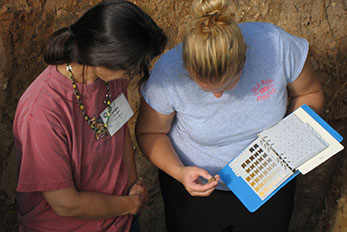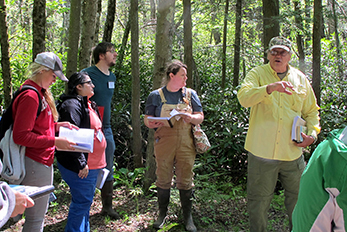Main Content
Complete 3 courses and an exam to earn this nationally recognized certificate that confirms your ability to skillfully identify wetland boundaries.
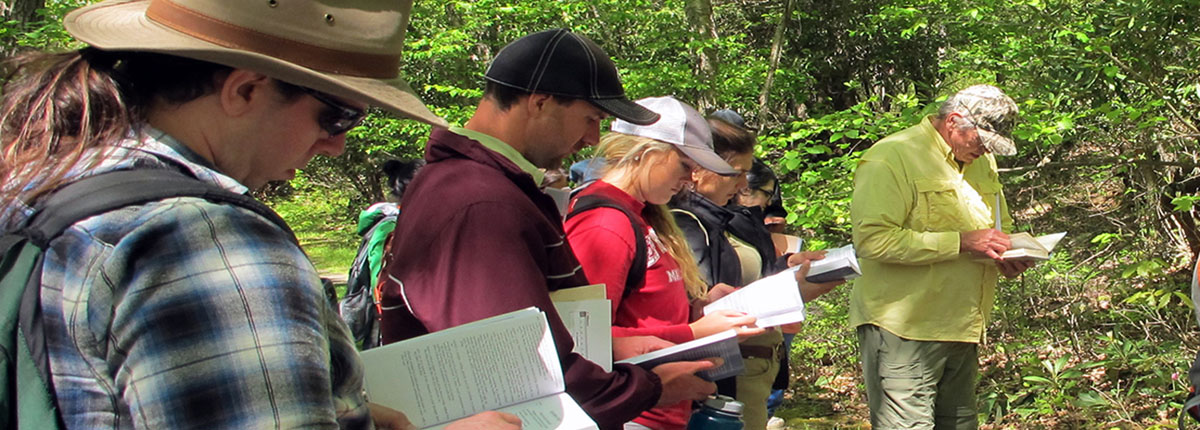
 Wetland Delineation Certificate Program Overview
Wetland Delineation Certificate Program Overview
Meet the demand for qualified wetland delineators! Developers, consultants, preservationists, and regulatory agencies all require skilled professionals who are able to identify the vegetation, soils, and hydrology that define wetlands. Delineators also need to have the practical field training, regulatory background, and other experience to support their findings. The US Army Corps of Engineers does not currently offer a Wetland Delineation Certification, but Rutgers University’s nationally-recognized Wetland Delineation Certificate will teach you how to accurately delineate wetlands and provide you with the necessary qualifications.
Benefits of Earning a Rutgers Wetland Delineation Certificate
- Combination of online instruction and field training for hands-on knowledge
- Opportunity to learn from recognized wetlands experts Ralph Tiner and Deborah Henson
- Career advancement and new opportunities to provide in-demand services
- Professional enrichment
- Valuable reference materials
- Continuing education credits for a variety of professional licenses
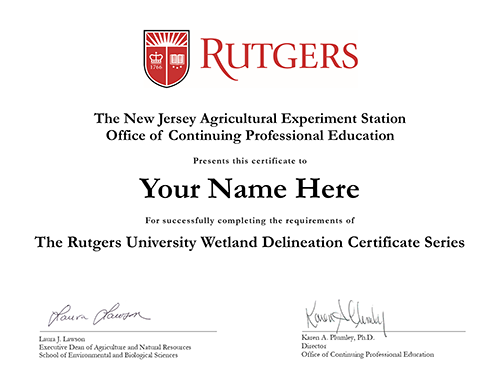
 Wetland Delineation Certificate Program Requirements
Wetland Delineation Certificate Program Requirements
The Wetland Delineation Certificate is awarded to participants who:
- attend and successfully complete assignments for the following three (3) training courses;
- complete an online exam with a score of 70% or better.
NOTE: When you enroll in the series, you should complete the Vegetation Identification for Delineating Wetlands (North or South) and Hydric Soils courses prior to the Methodology for Delineating Wetlands course. If you are not familiar with wetlands, hydrology, or vegetation, we strongly recommend that you complete Introduction to Wetland Identification prior to enrolling in the Certificate Series courses.
Hydric Soils
Explore the fundamentals of how hydric soils form, how to identify them, and how to assign appropriate hydric soil indicators in order to determine wetland boundaries.
Next offering is scheduled for April 14, 15, and 16, 2026 – Register now!
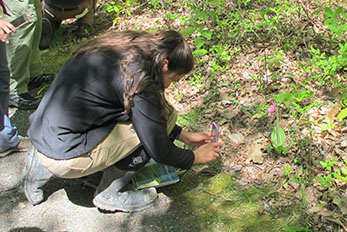
Vegetation Identification for Wetland Delineation
Develop the ability to identify wetland plants and distinguish between upland and wetland plant species, an essential step in the wetland delineation process. You may take either the North OR the South session.
- Vegetation Identification for Wetland Delineation: North – Next offering is scheduled for May 13 & 14, 2026 – Register now!
- Vegetation Identification for Wetland Delineation: South – No offerings are available right now. Join our email list to be notified of the next session date.
Methodology for Delineating Wetlands
Learn how to recognize key indicators of wetlands (hydrophytic vegetation and other signs of wetland hydrology) and how to use them in combination with hydric soil indicators to follow the delineation methods outlined in the Federal Interagency Wetland Delineation Manual.
Next offering is scheduled for June 4 and June 8-11, 2026 – Register now!
 Wetland Delineation Certificate Series Discount
Wetland Delineation Certificate Series Discount
When you register for all three courses in the series (Hydric Soils, Vegetation Identification (North or South) and Methodology for Delineation Wetlands), you’ll save $100 on each course for a total savings of $300.
 Wetland Delineation Certificate Program Instructors
Wetland Delineation Certificate Program Instructors
Deborah Henson, PhD, CPSS
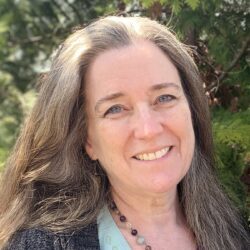
Deborah Henson, PhD, CPSS (She/her). Deborah is a Certified Professional Soil Scientist, with a doctorate from the University of Massachusetts Amherst in Plant & Soil Sciences, specializing in wetland soil pedology and plant-soil interactions in wetland environments. Deb has more than thirty years of experience as a wetland scientist. She started her career as an environmental professional working for environmental consulting firms in New Jersey in the late 1980s and early 1990s. After completing her doctoral studies at UMass Amherst, she was hired there as full-time faculty; and since 2011 she has been managing the interdepartmental Environmental Science Program. Her campus teaching includes full-semester courses in “Wetland Soils,” “Environmental Soil Science,” and “Soil Science & Management.” She also teaches a wide assortment of wetland science and soil science short courses and workshops for UMASS Extension and the Massachusetts Department of Environmental Protection. She is co-author of the recently updated Massachusetts Handbook for Delineating Bordering Vegetated Wetlands.
Ralph Tiner, M.S., M.P.A., SWS Fellow
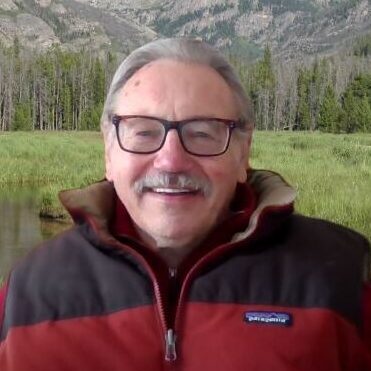
Ralph Tiner has more than 40 years of practical experience in wetland delineation and is a nationally recognized authority in the field. He recently retired from the U.S. Fish & Wildlife Service where he directed wetland mapping in the Northeast United States as part of the U.S. Fish & Wildlife Service’s National Wetlands Inventory (NWI). He is a nationally recognized expert on wetland delineation and has been actively involved in improving wetland delineation techniques for decades. In addition, he was compiler and principal author of the Federal Interagency Wetland Delineation Manual, which was published in 1989 and is the standard for identifying and delineating wetlands in New Jersey.
Read More About Ralph Tiner
Ralph has written extensively on the subject of wetlands and is the author of several field guides including: Field Guide to Non-tidal Wetland Identification, Maine Wetlands and Their Boundaries, A Field Guide to Coastal Wetland Plants of the Northeastern United States, and In Search of Swampland, as well as an update of the Wetland Indicators book entitled Wetland Indicators: A Guide to Wetland Formation, Identification, Delineation, Classification, and Mapping. His most recent books are: Tidal Wetlands Primer: An Introduction to Their Ecology, Natural History, Status, and Conservation and Remote Sensing of Wetlands: Applications and Advances (for which he is senior editor and authored several chapters).
In addition to writing about wetlands, he has been teaching wetland identification and delineation courses through the Rutgers Office of Continuing Professional Education Office since the mid-1980s.
 Student Reviews
Student Reviews
The entire program was beneficial for me. It touched upon all my questions.
– Brad Griffen, Environmental Scientist/Biologist
I want to thank your office for actually offering these continuing education courses; they truly are one of a kind in the area, well worth the time and resources it takes to attend. The professors are definitive experts in their related fields and are extremely enlightening. I look forward to taking additional courses in the future.
– Nicholas Ginther, Landscape Designer, DW Smith Associates, LLC
Best courses I have ever taken. Instructors know what they are doing, know how to teach it, and have excellent sense of humor.
– Past Participant
 Who Should Attend the Wetland Delineation Certificate Program?
Who Should Attend the Wetland Delineation Certificate Program?
This program is recommended for professionals who want to master the three critical components of identifying wetland areas: evidence of wetland hydrology, a predominance of hydrophytic vegetation, and presence of hydric soils. Individuals from a range of professional backgrounds have completed this certificate in the past, including:
- Biologists
- Ecologists
- Environmental Consultants
- Environmental Project Managers
- Environmental Scientists
- Geologists
- Landscape Designers
- Planners
- Soil Scientists
- Water Resources Engineers
 Program Questions? We’re Here to Help!
Program Questions? We’re Here to Help!
If you have any questions about the Wetland Delineation Certificate, please don’t hesitate to reach out to us.
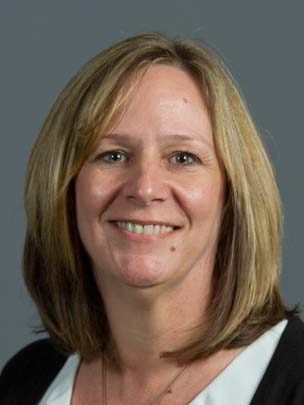
Program Coordinator: Suzanne Hills
848-932-7234
suzanne.hills@rutgers.edu
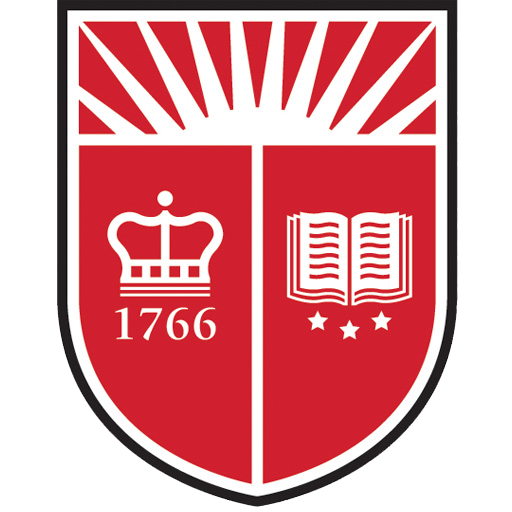
Administrative Assistant: Amy Smith
848-932-7764
amy.smith70@rutgers.edu
